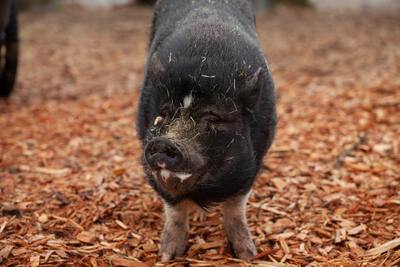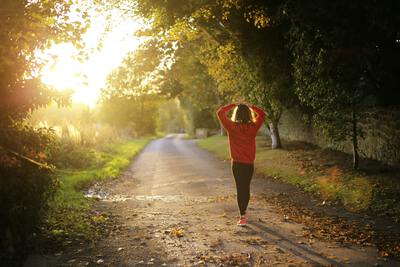
Going Veg & the Environment
Making Sustainable Food Choices
We, at HappyCow, are dedicated to promoting a sustainable lifestyle and fostering a supportive space for people from all walks of life to come together and discuss about subjects that matter (Eco-Vegan): health, happiness, community, open exchange, food, the environment.
On the subject of environment and climate change, does what we eat make a difference? To that we say, "Absolutely!" Because our ecosystem is so inter-connected, the everyday food choices we make matter.
The resources on this page will help you learn how you can help the environment with your food choices, eating habits, and general living decisions.
Going Vegan Saves 4,200 liters of Water Every Day and More
The chair of the UN panel on climate change (IPCC), Rajendra Pachauri, says that the best thing people can do to fight against climate change is eat less meat.
Going vegan will have the biggest effect, but even going vegetarian, or cutting out as much meat as possible can have a huge impact on the environment.

(Source: veganismbythenumbers.com - now defunct)
Eating less meat leads to fewer farmed animals, which consume a lot of resources to raise.
On average, a vegan diet saves:
- 4,200 liters of water per day.
- 20.4 kilograms of grains per day.
- 9.1 kilograms CO2 equivalent per day.
- 2.8 meters squared of forested land per day.
Those are significant numbers, which illustrate that one person can make a difference.
At this point, it's important to understand that animal agriculture, is just one of the ways that our food and living decisions affect the environment.
If you're interested in minimizing your environmental impact, take a close look at the resources in the following sections.
How to Save the Environment Through Your Food Choices
Beyond going vegetarian or vegan, there are other ways our food habits impact the environment.
These resources will help you understand the effects of your habits, and how to make small eating changes to reduce your impact:
- An elegant sufficiency - a guide to responsible eating: How to eat responsibly to reduce waste.
- 4 COS4S (Four Things), Part 3: The science of how the environment is affected by what we eat.
- Food can heal the world: Reading labels, going back to your roots, and choosing to eat lower on the food chain.
- Have you greened your diet yet?: Simple and practical tips to reduce your dietary environmental impace.
- There's a saying, "Just because you're vegan doesn't mean that you're living an ethical life": Veganism vs. freeganism
- Soybeans and the environment: Let's take another look at the statistics.
- Happy earth day: 5 green restaurants: Examples of restaurants going green.
Understanding Agriculture and its Environmental Impact
Agriculture is necessary for modern societies, but not all types of agriculture have the same environmental impact.
The following resources should really make it clear the effect of agriculture on the environment, and what you can do to minimize it.
- Taking inspiration from Ojai Center for Regenerative Agriculture: Promoting organic farming and its many benefits.
- Veganism And The Drought: How Californians are attempting to cut water use through diet choices.
- How Environmentally Ethical Is Your Diet?: Comparing the environmental cost of common vegetarian foods like lentils, potatoes, and rice.
- Cowspiracy – The Sustainability Secret: One of the most popular documentaries that exposes the true cost of animal agriculture.
- Look behind the news: Challenge yourself to understand the wider implications and the story behind the news.
Living Green and Taking Care of the Environment
Finally, many people who go vegetarian or vegan gain an increased awareness of why it's important to minimize our environmental footprint.
Reducing our footprint does include our food choices, but goes beyond that as well.
The following resources will give you some things to think about that should lead you in the right direction:
- Everyday is Earth Day: Setting aside just one day in the year is not enough; we have the power to make a positive impact each and everyday.
- Frugally and environmentally friendly transportation alternatives: Reducing fuel dependency and carbon emissions for a more eco-friendly life.
- "Wildlife" overpopulation v. urban sprawl: Which came first?
- Living Web Films - regenerative agriculture: Project about a new, progressive, and advanced practice of agriculture that will regenerate soil.
- Vegan cycling: More than fun and exercise, cycling reduces your carbon footprint.
- Films on the future of society: Four films that calls us to immediate present-time action.
Last edited by Dale C. Feb 2018.




